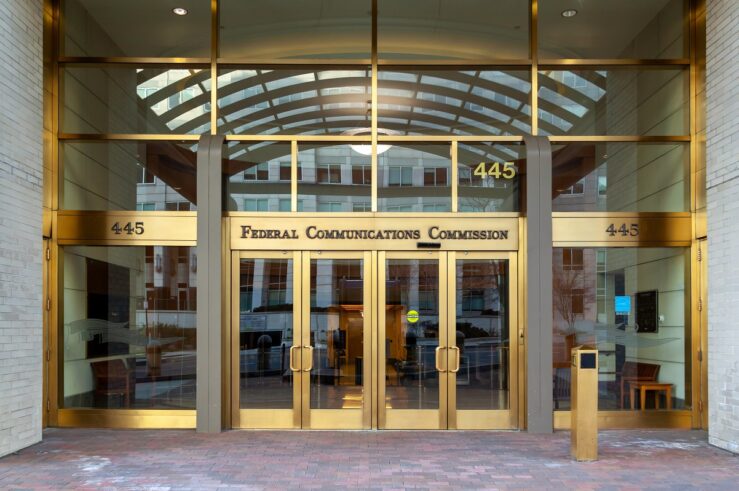Showing results for: “Michael Vita”
Gomez Confirmed to FCC: Here Comes Net Neutrality, But First…
The U.S. Senate moved yesterday in a 55-43 vote to confirm Anna Gomez to the Federal Communications Commission. Her confirmation breaks a partisan deadlock at the agency that has been in place since the beginning of the Biden administration, when Commissioner Jessica Rosenworcel vacated her seat to become FCC chair. The commission now has a ... Gomez Confirmed to FCC: Here Comes Net Neutrality, But First…
ACP Spends More Money While Running Out of Money; BEAD Rules Run Amok
If this is what a summer slowdown looks like in telecom policy world, then autumn is going to be a real humdinger. FCC Announces More Spending for ACP Outreach Last week, the Federal Communications Commission (FCC) announced government agencies and nonprofits in 11 states and territories will receive an additional $4.3 million to promote the ... ACP Spends More Money While Running Out of Money; BEAD Rules Run Amok
Red Tape and Headaches Plague BEAD Rollout
While the dog days of August have sent many people to the pool to cool off, the Telecom Hootenanny dance floor is heating up. We’ve got hiccups in BEAD deployment, a former Federal Communications Commission (FCC) member urging the agency to free-up 12 GHz spectrum for fixed wireless, and another former FCC commissioner urging a ... Red Tape and Headaches Plague BEAD Rollout
Note to the FTC: Punishing Efficiency Means Destroying Competition
Yesterday, Lina Khan’s FTC released their long-awaited draft merger guidelines for public comment. Regrettably yet not unsurprisingly, the new guidelines are a radical departure from established case law and antitrust thinking. They’re marked by a failure to account for the role of efficiencies in the competitive process, and a failure to distinguish between the implications of generally ... Note to the FTC: Punishing Efficiency Means Destroying Competition
Antitrust at the Agencies Roundup: You Will Absolutely Work in This Town Again Edition
I mean, Alvaro. I know it was you, Alvaro. Readers might recall my recent discussion of the Federal Trade Commission’s (FTC) new Bureau of Let’s Sue Meta, in which I covered, among other things, the commission’s proposal to modify its 2020 Decision and Order In the Matter of Facebook Inc. (now Meta). The 2020 order ... Antitrust at the Agencies Roundup: You Will Absolutely Work in This Town Again Edition
FTC v Amgen: The Economics of Bundled Discounts, Part Two
The Federal Trade Commission (FTC) recently announced that it would sue to block Amgen’s proposed $27.8 billion acquisition of Horizon Therapeutics. The challenge represents a landmark in the history of pharmaceutical-industry antitrust enforcement, as the industry has largely been given license to engage in permissive mergers and acquisitions of smaller companies without challenge. In Part One, ... FTC v Amgen: The Economics of Bundled Discounts, Part Two
Two FCC Commissioners Walk Into a Bar
Former FCC Commissioners Have Some Thoughts Writing with Kirk Arner in RealClearMarkets, Harold Furchtgott-Roth—formerly of the Federal Communications Commission (FCC)—comments on the Spectrum Auction Reauthorization Act, recently passed out of the House Energy and Commerce Committee. Arner and Furchtgott-Roth note that reauthorizing spectrum auctions is a “good and necessary idea,” but take issue with the “$23 billion Ponzi ... Two FCC Commissioners Walk Into a Bar
There’s Nothing ‘Fair’ About EU Telecoms’ Proposed ‘Fair Share’ Plan
The European Commission’s recently concluded consultation on “the future of the electronic communications sector and its infrastructure” was a curious phenomenon in which the commission revived the seemingly dead-and-buried idea of a legally mandated “sender pays” network-traffic scheme, despite the fact that it remains as unpopular and discredited as it was when last discussed roughly ... There’s Nothing ‘Fair’ About EU Telecoms’ Proposed ‘Fair Share’ Plan
UK Poised to Begin Realizing Brexit’s Regulatory-Reform Potential
The United Kingdom’s 2016 “Brexit” decision to leave the European Union created the opportunity for the elimination of unwarranted and excessive EU regulations that had constrained UK economic growth and efficiency. Recognizing that fact, former Prime Minister Boris Johnson launched the Task Force on Innovation, Growth, and Regulatory Reform, whose May 2021 report recommended “a new regulatory ... UK Poised to Begin Realizing Brexit’s Regulatory-Reform Potential
Whatcha Gonna Do When the Well Runs Dry?
As the U.S. House Energy and Commerce Subcommittee on Oversight and Investigations convenes this morning for a hearing on overseeing federal funds for broadband deployment, it bears mention that one of the largest U.S. broadband-subsidy programs is actually likely run out of money within the next year. Writing in Forbes, Roslyn Layton observes of the Affordable Connectivity Program ... Whatcha Gonna Do When the Well Runs Dry?
Biweekly FTC Roundup: Antitrust Woodstock Edition
Last week’s roundup was postponed because I was kibbitzing at the spring meeting of the American Bar Association (ABA) Antitrust Section. For those outside the antitrust world, the spring meeting is the annual antitrust version of Woodstock. For those inside the antitrust world: Antitrust Woodstock is not really a thing. At the planetary-orbit level, the ... Biweekly FTC Roundup: Antitrust Woodstock Edition
What the European Commission’s More Interventionist Approach to Exclusionary Abuses Could Mean for EU Courts and for U.S. States
The European Commission on March 27 showered the public with a series of documents heralding a new, more interventionist approach to enforce Article 102 of the Treaty on the Functioning of the European Union (TFEU), which prohibits “abuses of dominance.” This new approach threatens more aggressive, less economically sound enforcement of single-firm conduct in Europe. ... What the European Commission’s More Interventionist Approach to Exclusionary Abuses Could Mean for EU Courts and for U.S. States










